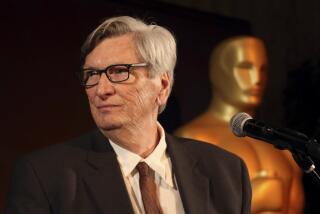Norman A. Baily, a Pioneer in Medicine, Dies of Cancer
- Share via
Norman A. Baily, whose work in medical radiology furthered the science of diagnoses and radiation therapy and found applications in the space program as well, died of cancer at his home in La Jolla.
Baily, who died Wednesday, was the chief of the division of radiological physics and engineering at UC San Diego’s School of Medicine from 1968 until 1988 when he became professor emeritus.
He earned his Ph.D. in physics from Columbia University in 1952, and his later work on radiation dosage and tissue radiation detectors was widely regarded to be in the forefront of the field.
Among the developments that reflected his research were the techniques applied to the processing of signals appearing on video monitors following tissue radiation, techniques that enable the immediate visualization of individual body planes on a fluoroscopic screen, and new approaches to X-ray film storage and retrieval utilizing holographic concepts.
Most recently, Baily was involved in pioneering efforts aimed at studying the generation of ultrasound by radiation, a concept that has theoretical potential for both radiological diagnosis and for the mapping of radiation tracks in tissues.
Baily, who served as scientific adviser to Air Force Gen. Curtis LeMay from 1952 to 1954, held numerous advisory and board positions on national and international societies, including the American Assn. of Physicists in Medicine, which in 1986 initiated an annual Norman A. Baily student research award in his honor.
Baily is survived by his wife, Rose; a daughter, Barbara Black of Carmichael, Calif.; a son, Philip Baily of Santa Monica; five grandchildren, and his sister, Enid Loggin of New Rochelle, N.Y.
No funeral plans were announced, and the family requests that in lieu of flowers, donations be made to the Baily Award, in care of the department of radiology at UC San Diego.





